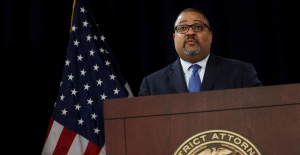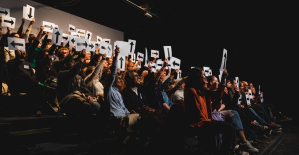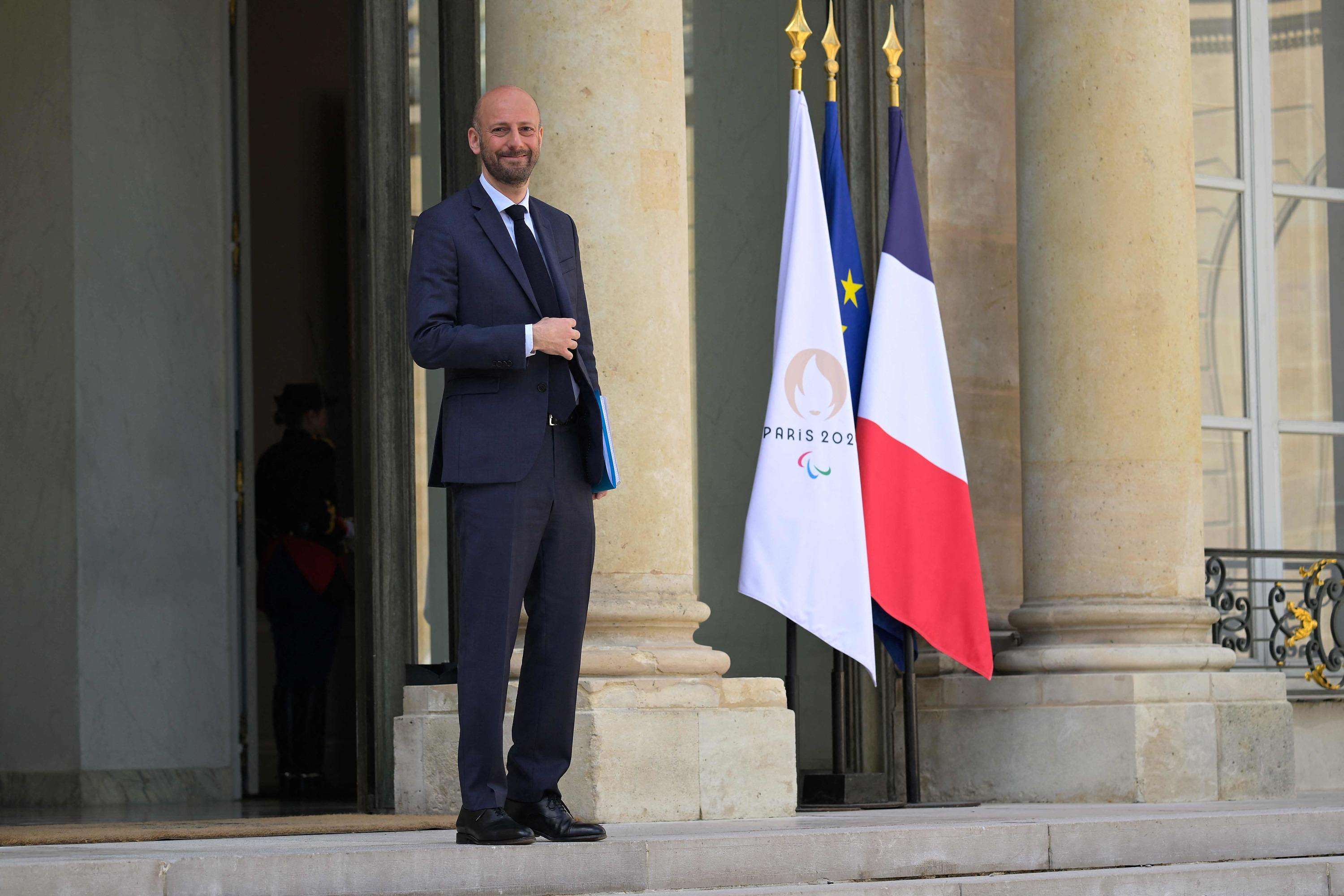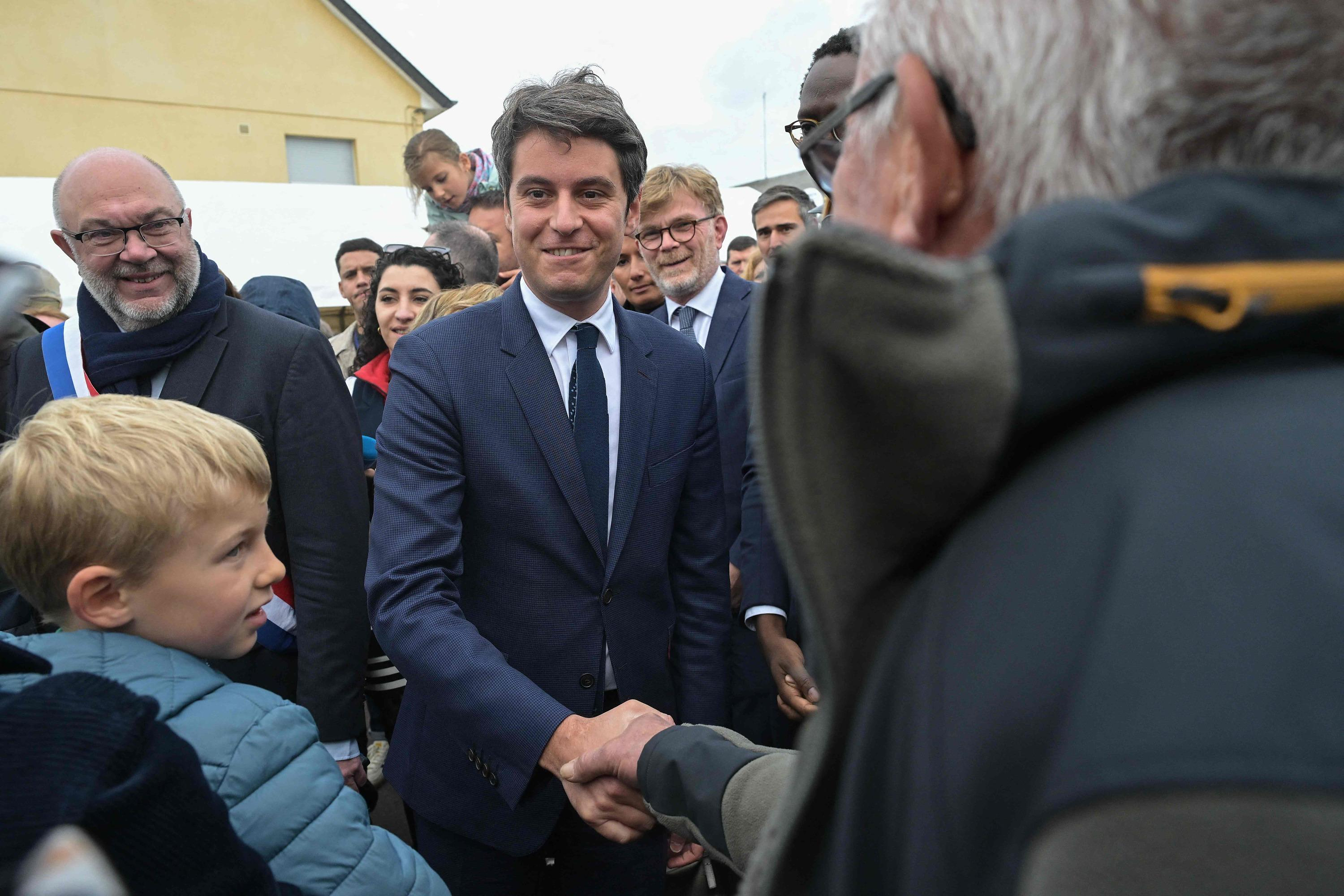According to a media report, Israel's government is advising on a possible halt to the project because of the bitter protest against its judicial reform. Prime Minister Benjamin Netanyahu discussed this with several ministers in his cabinet from Sunday evening until late into the night, the Jerusalem Post reported. Justice Minister Jariv Levin, Finance Minister Bezalel Smotrich, Education Minister Joav Kisch and Strategic Minister Ron Dermer took part in the crisis talks in his office.
Citing sources within Netanyahu's Likud party, the newspaper went on to say that Dermer and Kish had tried to persuade the prime minister to suspend the reform. Attorney General Levin, on the other hand, insisted, threatening to resign, that the bill be passed against all odds. According to the Ynet news platform, the coalition leaders of the right-wing religious government are to meet in Netanyahu's office on Monday morning to discuss how to proceed.
Several ministers, who are said not to have attended the crisis meeting on Monday night, announced their support for a temporary halt to the legislative process should Netanyahu decide to do so. The goal of the reform project is correct, but the way to get there needs to be reconsidered and "not worth a civil war," the Jerusalem Post quoted Economics Minister Nir Barkat as saying. Culture Minister Miki Sohar said: "The reform of the judicial system is necessary and important, but when the house is on fire, you don't ask who is right, you pour water into the flames and save the residents."
There have been violent protests for months against the reform, which aims to curtail the influence of the Supreme Court and strengthen the government's position of power at the expense of the independent judiciary. The dispute reached a temporary high point over the weekend with the dismissal of Defense Minister Joav Galant.
Netanyahu had dismissed Galant, who belongs to his right-wing conservative Likud party, because of his call to halt judicial reform. The previous defense minister called on the government to engage in dialogue with critics on Saturday evening. He warned that national security is at stake. For weeks there has been talk of growing resentment in the military, and numerous reservists did not show up for duty in protest against the reform.
The anger of many people, who fear for democracy in Israel, is breaking out in the streets. After 200,000 people had already flocked there on Saturday, countless demonstrators with Israeli flags blocked the central road to Jerusalem on Sunday evening in Tel Aviv and set tires on fire. The police used cavalry squadrons and water cannons against the crowd, from which stones were thrown at the emergency services. Angry people broke through a roadblock next to Netanyahu's home in Jerusalem, and the head of the domestic intelligence agency Shin Bet went there that night. According to media reports, the army was put on increased alert because of the chaotic developments.
Netanyahu's coalition, which has been in office for three months, actually wanted to implement core elements of the reform in the coming days. However, due to recent events, it is unclear whether a law will be voted on Monday as planned, which is intended to give government politicians more influence in the appointment of judges.
Israeli universities announced on Sunday evening a temporary teaching freeze in protest against Galant's dismissal and the reform plans. Several mayors went on hunger strike, demanding an immediate containment of the national crisis. The trade union confederation (Histadrut) scheduled a press conference for Monday, apparently to call a general strike.
The plans also sparked considerable criticism internationally. Even the US government, Israel's most important ally, was "deeply concerned" in a statement: In view of the planned "fundamental changes to a democratic system", the White House called on the Israeli leadership "strongly to find a compromise as soon as possible".
Former Prime Minister Naftali Bennett warned that Israel was in the greatest danger since the Yom Kippur War in 1973. Arab states had surprisingly attacked Israel on the holiest Jewish holiday. Bennett called on Netanyahu to reverse Galant's sacking, suspend reform and engage in dialogue with opponents. He warned the demonstrators not to use violence and to prevent bloodshed. "We are brothers," wrote Bennett.
Security experts warn that enemies of Israel - above all Iran, the Lebanese Hezbollah militia and militant Palestinian organizations in the Gaza Strip - could seize the opportunity to attack the country, which has been weakened by the domestic political crisis.
"Kick-off Politics" is WELT's daily news podcast. The most important topic analyzed by WELT editors and the dates of the day. Subscribe to the podcast on Spotify, Apple Podcasts, Amazon Music, among others, or directly via RSS feed.

 B:SM will break its investment record this year with 62 million euros
B:SM will break its investment record this year with 62 million euros War in Ukraine: when kyiv attacks Russia with inflatable balloons loaded with explosives
War in Ukraine: when kyiv attacks Russia with inflatable balloons loaded with explosives United States: divided on the question of presidential immunity, the Supreme Court offers respite to Trump
United States: divided on the question of presidential immunity, the Supreme Court offers respite to Trump Maurizio Molinari: “the Scurati affair, a European injury”
Maurizio Molinari: “the Scurati affair, a European injury” Irritable bowel syndrome: the effectiveness of low-carbohydrate diets is confirmed
Irritable bowel syndrome: the effectiveness of low-carbohydrate diets is confirmed Beware of the three main sources of poisoning in children
Beware of the three main sources of poisoning in children First three cases of “native” cholera confirmed in Mayotte
First three cases of “native” cholera confirmed in Mayotte Meningitis: compulsory vaccination for babies will be extended in 2025
Meningitis: compulsory vaccination for babies will be extended in 2025 In the United States, a Boeing 767 loses its emergency slide shortly after takeoff
In the United States, a Boeing 767 loses its emergency slide shortly after takeoff The A13 motorway will not reopen on May 1
The A13 motorway will not reopen on May 1 More than 1,500 items for less than 1 euro: the Dutch discounter Action opens a third store in Paris
More than 1,500 items for less than 1 euro: the Dutch discounter Action opens a third store in Paris 100 million euros in loans, water storage, Ecophyto plan… New measures from the executive towards farmers
100 million euros in loans, water storage, Ecophyto plan… New measures from the executive towards farmers Books poisoned with arsenic present in French libraries
Books poisoned with arsenic present in French libraries New York justice returns 30 works of art looted from Cambodia and Indonesia
New York justice returns 30 works of art looted from Cambodia and Indonesia Les Galons de la BD dedicates War Photographers, a virtuoso album on the Spanish War
Les Galons de la BD dedicates War Photographers, a virtuoso album on the Spanish War Theater: Kevin, or the example of an academic failure
Theater: Kevin, or the example of an academic failure Skoda Kodiaq 2024: a 'beast' plug-in hybrid SUV
Skoda Kodiaq 2024: a 'beast' plug-in hybrid SUV Tesla launches a new Model Y with 600 km of autonomy at a "more accessible price"
Tesla launches a new Model Y with 600 km of autonomy at a "more accessible price" The 10 best-selling cars in March 2024 in Spain: sales fall due to Easter
The 10 best-selling cars in March 2024 in Spain: sales fall due to Easter A private jet company buys more than 100 flying cars
A private jet company buys more than 100 flying cars This is how housing prices have changed in Spain in the last decade
This is how housing prices have changed in Spain in the last decade The home mortgage firm drops 10% in January and interest soars to 3.46%
The home mortgage firm drops 10% in January and interest soars to 3.46% The jewel of the Rocío de Nagüeles urbanization: a dream villa in Marbella
The jewel of the Rocío de Nagüeles urbanization: a dream villa in Marbella Rental prices grow by 7.3% in February: where does it go up and where does it go down?
Rental prices grow by 7.3% in February: where does it go up and where does it go down? Even on a mission for NATO, the Charles-de-Gaulle remains under French control, Lecornu responds to Mélenchon
Even on a mission for NATO, the Charles-de-Gaulle remains under French control, Lecornu responds to Mélenchon “Deadly Europe”, “economic decline”, immigration… What to remember from Emmanuel Macron’s speech at the Sorbonne
“Deadly Europe”, “economic decline”, immigration… What to remember from Emmanuel Macron’s speech at the Sorbonne Sale of Biogaran: The Republicans write to Emmanuel Macron
Sale of Biogaran: The Republicans write to Emmanuel Macron Europeans: “All those who claim that we don’t need Europe are liars”, criticizes Bayrou
Europeans: “All those who claim that we don’t need Europe are liars”, criticizes Bayrou These French cities that will boycott the World Cup in Qatar
These French cities that will boycott the World Cup in Qatar PSG: “Immense pride in continuing the adventure in Paris”, relishes Zaire-Emery
PSG: “Immense pride in continuing the adventure in Paris”, relishes Zaire-Emery Breaking: everything you need to know about this sport
Breaking: everything you need to know about this sport NBA: Lakers gain respite, Boston responds to Miami
NBA: Lakers gain respite, Boston responds to Miami Top 14: “a very severe red card”, estimates Labit (French Stadium)
Top 14: “a very severe red card”, estimates Labit (French Stadium)

















